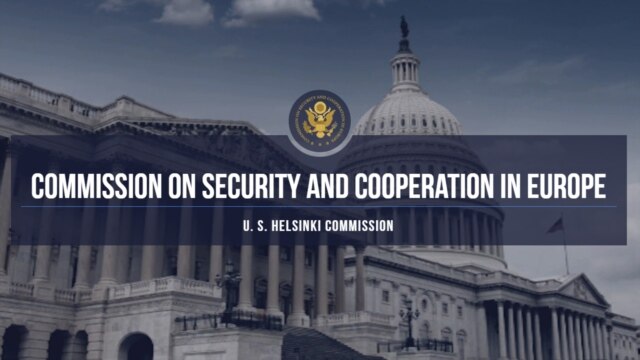RFE/RL’s Sedletska Participates in CSCE Briefing
At this Helsinki Commission briefing, panelists explored the state of institutional resilience and political context for the election of Volodymyr Zelenskiy as Ukraine’s next president on April 21, 2019. The briefing also explored implications for transatlantic engagement and opportunities for reforms on issues related to the rule of law, media freedom, and corruption.

UKRAINIAN ELECTIONS FOCUS OF HELSINKI COMMISSION BRIEFING
POWER AND POLITICS
Implications of Ukraine’s Presidential Elections
Thursday, May 9, 2019
2:00 p.m.
Rayburn House Office Building
Room 2200
At this Helsinki Commission briefing, panelists explored the state of institutional resilience and political context for the election of Volodymyr Zelenskiy as Ukraine’s next president on April 21, 2019. The briefing also explored implications for transatlantic engagement and opportunities for reforms on issues related to the rule of law, media freedom, and corruption.
The following panelists participated in the briefing, which was moderated by CSCE chief of staff Alex T. Johnson and CSCE Senior Senate Staff Representative Kyle Parker:
- Dr. Michael Carpenter, Senior Director, Penn Biden Center for Diplomacy and Global Engagement
- Natalie Sedletska, Journalist and Host of “Schemes: Corruption in Detail,” Radio Free Europe/Radio Liberty Ukrainian Service
###
The Commission on Security and Cooperation in Europe, also known as the U.S. Helsinki Commission, is an independent commission of the U.S. Government charged with monitoring compliance with the Helsinki Accords and advancing comprehensive security through promotion of human rights, democracy, and economic, environmental and military cooperation in 57 countries. The Commission consists of nine members from the U.S. Senate, nine from the House of Representatives, and one member each from the Departments of State, Defense, and Commerce.